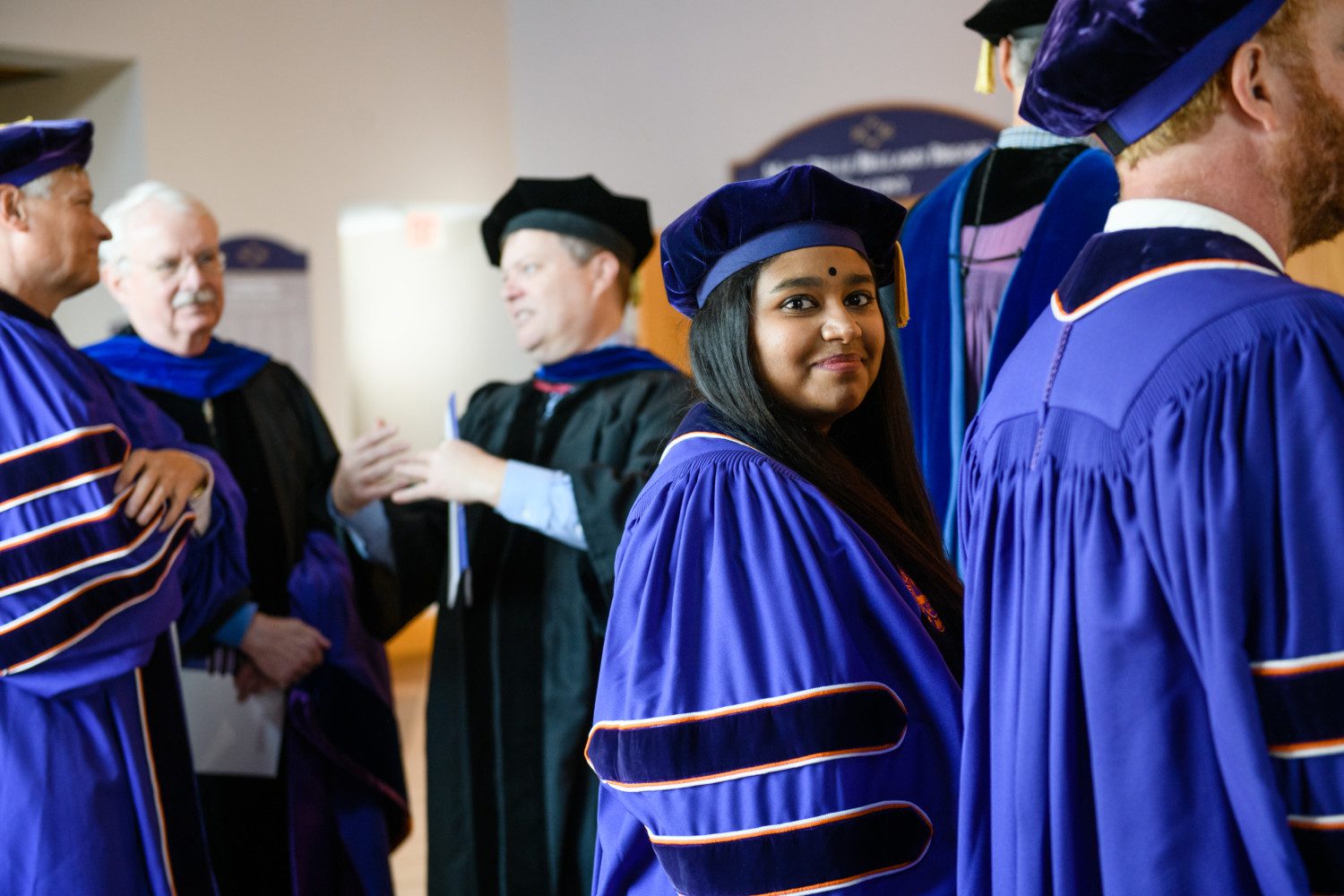The work of two Clemson University graduate students is bringing valuable new insight into the global fight to save tigers in the wild. Working at both the Ph.D. and master’s levels, their research projects examine how people and politics affect tiger conservation in different ways.
Publications from these graduate students are being used by the Tigers United University Consortium to further its work to save the few tigers remaining in the wild from extinction. The consortium consists of four land-grant, tiger mascot universities working collaboratively on this issue, two of whom are facing each other in the upcoming College Football Playoff National Championship game – Clemson University, Louisiana State University, Auburn University and the University of Missouri.
Devyani Singh’s doctoral dissertation focuses on the perceptions of and support for conservation and tourism across a variety of stakeholder groups in two tiger reserves in India. Louise Orr’s master’s thesis explores how political beliefs influence what types of conservation messages are most likely to reach people from various backgrounds or motivate them to take action.
According to Brett Wright, consortium director and dean emeritus of Clemson’s College of Behavioral, Social and Health Sciences, the work of Singh and Orr demonstrates the need for the research and the complexity of the global issue.

“Dr. Singh and Louise have tackled the tiger conservation issue in two very different ways, with both making an equally significant impact on the knowledge base in the field,” Wright said. “Devyani’s research is focusing on what can motivate people living in or near tiger reserves to help with conservation efforts, while Louise’s research is tackling how to motivate people who don’t live around tigers to help these animals from half a world away.”
Dr. Singh’s work will inform both management and policy in and around protected areas in India by ensuring conservation decisions consider the needs of affected nearby communities.
“Protected areas in India benefit their nearby communities in many ways – supporting both biodiversity and the human populations that depend on them, and becoming popular tourism destinations,” Singh said. “We know research supports the involvement of local communications in conservation and tourism efforts, so I took that a step further to find out what nearby residents thought about those efforts and to gauge their level of support.”
Now that her doctoral program is complete, Dr. Singh is hoping to continue to explore the challenges of coexisting with wildlife, especially carnivores, either as an academic or part of a research organization.

“I hope that my work can help find new solutions to the challenges involved with conservation and coexistence, empower future conservationists to critically assess issues from multiple perspectives, and educate more people about the tiger and its importance in the wild,” Singh said.
Orr, on the other hand, is hoping that her research can refocus the global discussion about tiger conservation. Her study found that simply informing Americans about what is happening to tigers around the world is not enough to convince them to take action.
Instead, people who feel connected to tigers in some way – through either first-hand knowledge or experiences with the animal or as fans of a team with a tiger mascot – could be more likely to want to help. This group is also more likely to respond to messaging that focuses on values that are important to them personally, such as care, fairness or sanctity of life.
“Most people have never seen a tiger in its natural habitat and aren’t likely to in their lifetime, making tiger conservation an issue that simply doesn’t resonate with many Americans,” Orr said. “However, if we can message the importance of saving tigers in a way that matches a person’s political ideologies and moral foundations, we could be more likely to motivate them to take action.”
Orr’s conclusions also verify that the Tigers United University Consortium’s primary focus on engaging students, faculty, staff and alumni at their respective universities is more likely to successfully motivate those people to help with tiger conservation, rather than trying to reach the country as a whole. Her conclusions will also help the consortium’s universities better target their calls to action to specific audience groups.
Both research projects were also supported by Clemson University’s Institute for Parks, which provides research, education, training and outreach that enhances the management of the world’s parks and protected areas.
END
Get in touch and we will connect you with the author or another expert.
Or email us at news@clemson.edu

